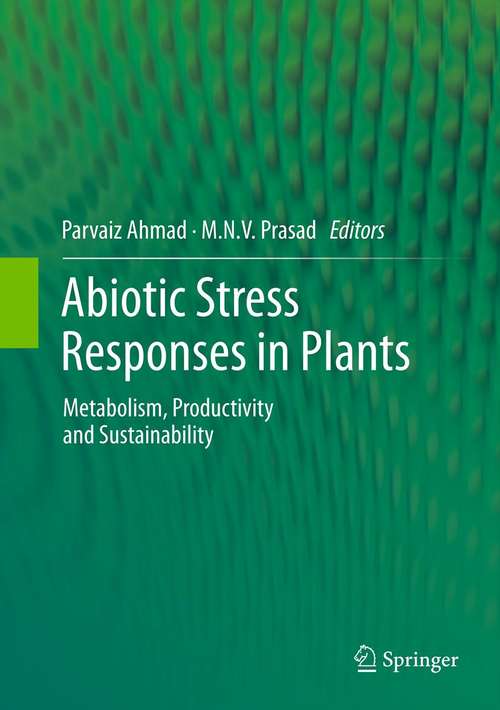Synopsis
Abiotic stress cause changes in soil-plant-atmosphere continuum and is responsible for reduced yield in several major crops. Therefore, the subject of abiotic stress response in plants - metabolism, productivity and sustainability - is gaining considerable significance in the contemporary world. Abiotic stress is an integral part of "climate change," a complex phenomenon with a wide range of unpredictable impacts on the environment. Prolonged exposure to these abiotic stresses results in altered metabolism and damage to biomolecules. Plants evolve defense mechanisms to tolerate these stresses by upregulation of osmolytes, osmoprotectants, and enzymatic and non-enzymatic antioxidants, etc. This volume deals with abiotic stress-induced morphological and anatomical changes, abberations in metabolism, strategies and approaches to increase salt tolerance, managing the drought stress, sustainable fruit production and postharvest stress treatments, role of glutathione reductase, flavonoids as antioxidants in plants, the role of salicylic acid and trehalose in plants, stress-induced flowering. The role of soil organic matter in mineral nutrition and fatty acid profile in response to heavy metal stress are also dealt with. Proteomic markers for oxidative stress as a new tools for reactive oxygen species and photosynthesis research, abscisic acid signaling in plants are covered with chosen examples. Stress responsive genes and gene products including expressed proteins that are implicated in conferring tolerance to the plant are presented. Thus, this volume would provides the reader with a wide spectrum of information including key references and with a large number of illustrations and tables.
